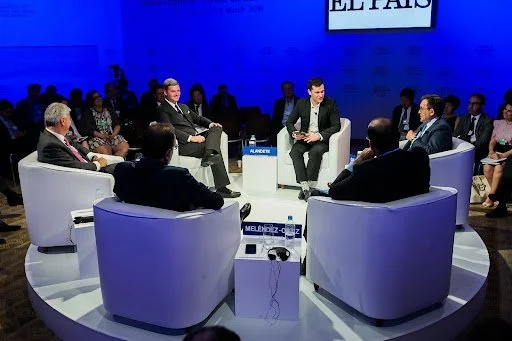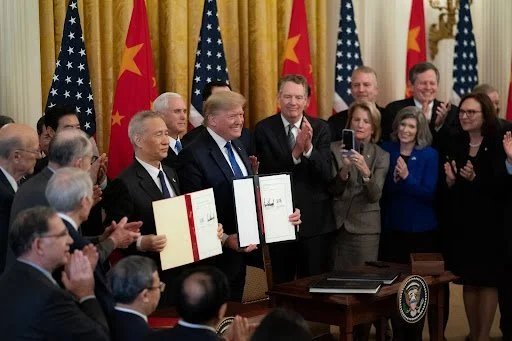How AI is Shaping the Future of Trade
Participants at the World Economic Forum on Latin America 2018 in Sao Paulo, Brazil Photo: Benedikt von Loebell / World Economic Forum
Over the past decade, artificial intelligence (AI) has progressively become more accessible, powerful, and easier to use. This has led to the widespread adoption of AI in the manufacturing, medicine, and gaming sectors. AI tools allow for big data sets to be analyzed in ways previously difficult, while making decisions that are often more accurate than even the best humans in complex fields, such as legal analysis. By 2035, AI adoption could double economic growth rates by making workers more productive and creating new industries.
As AI capabilities develop, the ways that machine learning technologies can be utilized has expanded. AI has reached nearly all professions in some way. Domestically, AI and big data allows politicians to target ads and messaging to constituents in far more cost effective ways. More broadly, machine learning has influenced all sorts of political decisions. For example, Hillary Clinton’s 2016 campaign relied heavily on the AI algorithm ‘Ada’ to make various strategic decisions, including where and when to have rallies with stars such as Jay Z and Beyonce.
President Donald J. Trump, joined by Chinese Vice Premier Liu He, signed the U.S. China Phase One Trade Agreement Photo: Tia Dufour / White House
Similar techniques are now being used in negotiations for international trade deals. Although quantitative approaches to international relations are not new, the ability to use modern machine learning techniques allows for more dynamic use of data. Professor Michael Ambühl of ETH Zurich proposes that the integration of AI into the international relations field is still in the early stages but will play a growing role in deal making between nations as a way to provide more clear information to negotiators.
For example, Brazil’s Intelligent Tech & Trade Initiative (ITTI) hopes that using “augmented intelligence to make trade decisions could allow countries to expand their competitive advantages by helping them better inform their trade policies.” The ITTI focuses on using a variety of information that would otherwise be too cumbersome to synthesize such as domestic taxes, volume of imports and exports, and macro-economic conditions to make decisions regarding international trade organization.
In addition, AI trade simulations allow previously under-resourced countries to make better decisions about their trade agreements. The United Nations Economic And Social Commission for Asia And The Pacific has developed an AI tool to allow for simulated negotiations while presenting real world data about current trade ties and trade deals. The UN hopes that this tool will be an equalizing factor in trade negotiations, such as in the case of Bangladesh which is using the tool in their trade negotiations with India.
While software slowly permeates the world, the use of various algorithms will be able to provide support to nearly every profession. It seems that international diplomats and world leaders will not be left out from this trend although instead of being replaced by an algorithm, AI could serve to supplement some of their most difficult work.


